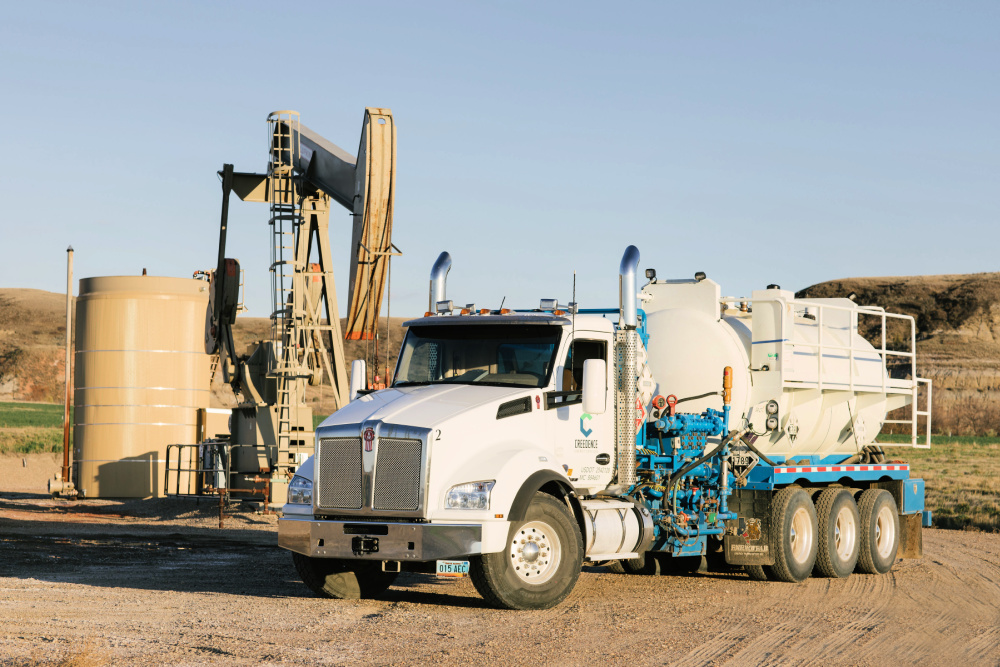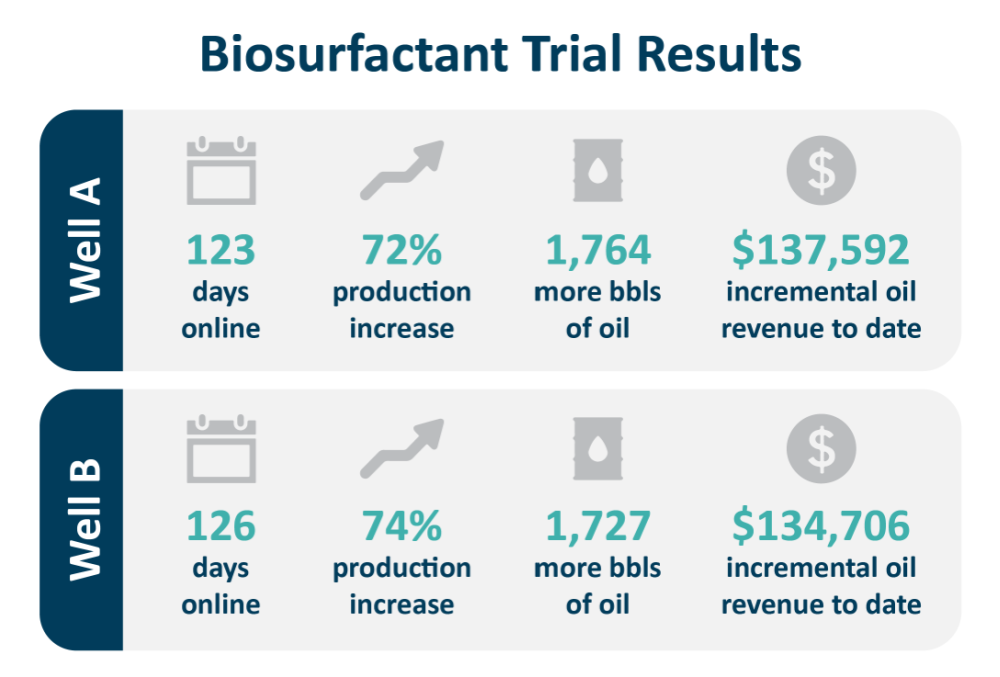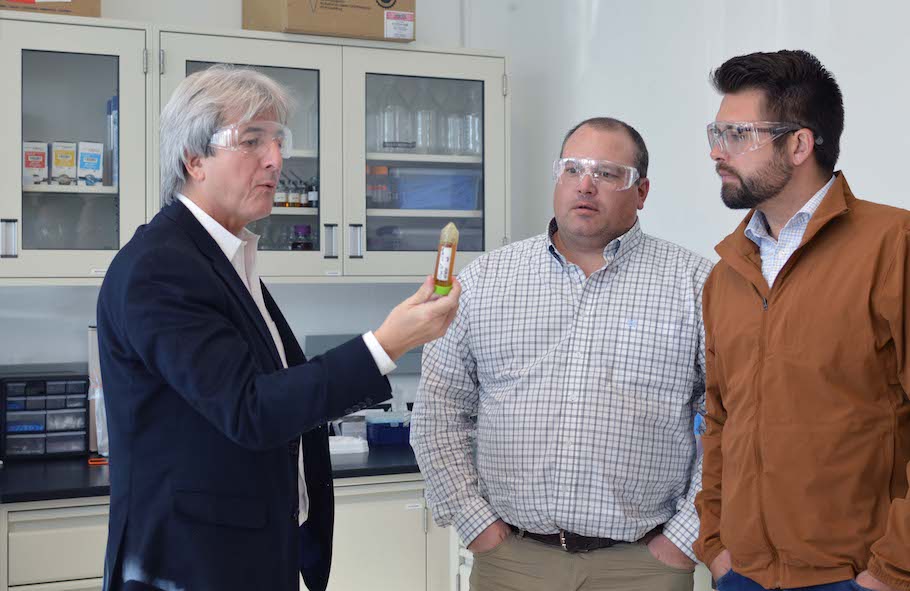Presented by:

This article appears in the E&P newsletter. Subscribe to the E&P newsletter here.
Widely considered the birthplace of the U.S. oil boom of the early 2000s, North Dakota’s Bakken oil field is now in serious decline. Amid the global COVID pandemic, and the market crash that followed in early 2020, Bakken operators are struggling to get their output back to pre-pandemic levels.
And after years of active drilling, operators face a decline in the number of new wells that can produce high volumes of low-cost oil. In the Bakken’s existing wells, oil recovery rates have averaged less than 10% over the past several years. Horizontal wells drilled towards the center of the Williston Basin have demonstrated decline rates as high as 85% within the first three years.
These realities are forcing operators to find new ways to boost production in declining wells and improve initial production in new completions—all while helping the Bakken become a leader in sustainable and economic oil production.
Reversing production declines with bio-based surfactants
Amid these ESG and financial pressures, the North Dakota Industrial Commission (NDIC) green-lighted a grant in February 2021 to Creedence Energy Services to trial a novel class of green oilfield chemistries in the state. Specifically, operators trialed bio-based surfactants, known as biosurfactants, developed by green tech startup Locus Bio-Energy Solutions (Locus BE).

Locus BE’s customized biosurfactants consistently outperform traditional oilfield chemistries in major oil and gas basins across the US. Operators in the Permian, Appalachian and Eagle Ford basins have used the biosurfactants in hydraulic fracturing, EOR, wellbore cleaning and paraffin removal, where these ESG-friendly solutions have consistently sustained production rates and extended well life.
With their unique multifunctional properties, the bio-based surfactants are easily introduced into the well as part of a frac fluid formulation or as a treatment on a producing well—with no special equipment and minimal capex required. The highly stable biosurfactants do not break down under extremes of heat or pressure and are proven to penetrate nanopores as small as 2 nm (pore sizes in many Bakken formations range from 2 to 20 nm).
As a result, the biosurfactants mobilize trapped oil that conventional surfactants cannot reach—and at as little as 1/50th of the dosage of conventional surfactants. Operators experience initial production increases for new frac stages and sustained production levels for many months after treatment—while realizing a 2-3X return on their investment in just a few months.
Biosurfactants are fully biodegradable and produced from renewable agricultural feedstocks native to North Dakota, including canola and sugar beets. These features, coupled with their near-zero carbon footprint, make biosurfactants a safe, sustainable and ESG-friendly production enhancement solution.
Proving its production-boosting potential
The success in other shale plays prompted the NDIC and Creedence to evaluate the biosurfactants in the Bakken. In February 2021, the commission unanimously approved funding through its oil and gas research program for Creedence to evaluate biosurfactant treatments in several wells across the region.
The trials, which began in first-quarter 2021, are designed to evaluate the biosurfactant treatments’ ability to increase oil mobility, boost production from declining wells, and improve initial production from new completions—providing operators an economical way to overcome depressed oil prices and lower capex for new wells.

In a short time, the biosurfactants proved themselves a sustainable production-enhancement solution. In analysis conducted four months after treatment in the first two declining wells, the biosurfactant treatments resulted in a per-well production increase of more than 1,700 barrels of oil—a 70%-plus increase in ongoing production compared to pre-treatment levels.
These early successes confirmed that the biosurfactants would improve oil production in North Dakota’s declining wells while providing sustained production in newly completed wells. The results also led Creedence Energy Services to sign an exclusive agreement with Locus BE to distribute the biosurfactant treatment to fields across the Williston basin. The ultimate goal is to use these treatments to make the Williston Basin a leader in producing low-carbon, low-cost barrels of oil.
The NDIC’s funding of the Creedence trials represents the second governmental approval of Locus BE’s biosurfactants. In 2020, the Texas Railroad Commission approved the biosurfactants as an EOR technology. Operators using this technology in their wells are eligible for a 50% severance tax credit on all oil produced for 10 years.

The solutions are also being globally recognition for their unique ability to reach otherwise immobile oil and provide sustained production gains at significantly lower costs. S&P Global Platts named Locus BE biosurfactants a finalist for both rising star and emerging technology of the year and last month World Finance picked Locus BE as best sustainability company for North America.
The early successes of these trials are welcome news to operators in the Bakken, which still holds approximately 7.4 billion barrels of technologically recoverable oil according to the U.S. Geological Survey. With this new partnership between Creedence and Locus BE, operators now have access to a novel, ESG-friendly technology to sustainably increase oil production.
Marty Shumway PE, CPG, serves as technical services director at Locus Bio-Energy Solutions.
Recommended Reading
CEO: Baker Hughes Lands $3.5B in New Contracts in ‘Age of Gas’
2024-07-26 - Baker Hughes revised down its global upstream spending outlook for the year due to “North American softness” with oil activity recovery in second half unlikely to materialize, President and CEO Lorenzo Simonelli said.
Pemex Hits Debt Target, Struggles to Reverse Production Declines
2024-07-26 - Pemex achieved its long-term debt target, which aimed to gets its financial obligations below the $100 billion, while struggling to halt production declines.
Dividends Declared in the Week of July 22
2024-07-25 - Second quarter earnings are underway, and companies are declaring dividends.
NextDecade Appoints Former Exxon Mobil Executive Tarik Skeik as COO
2024-07-25 - Tarik Skeik will take up NextDecade's COO reins roughly two months after the company disclosed it had doubts about remaining a “going concern.”
Freeport LNG Parent Receives Junk-level Credit Score From Fitch
2024-07-25 - Credit-rating firm Fitch Ratings cited the 2 Bcf/d Texas plant’s frequent downtimes among the factors leading to lowering Freeport LNG Investments LLLP’s credit grade on July 25.





